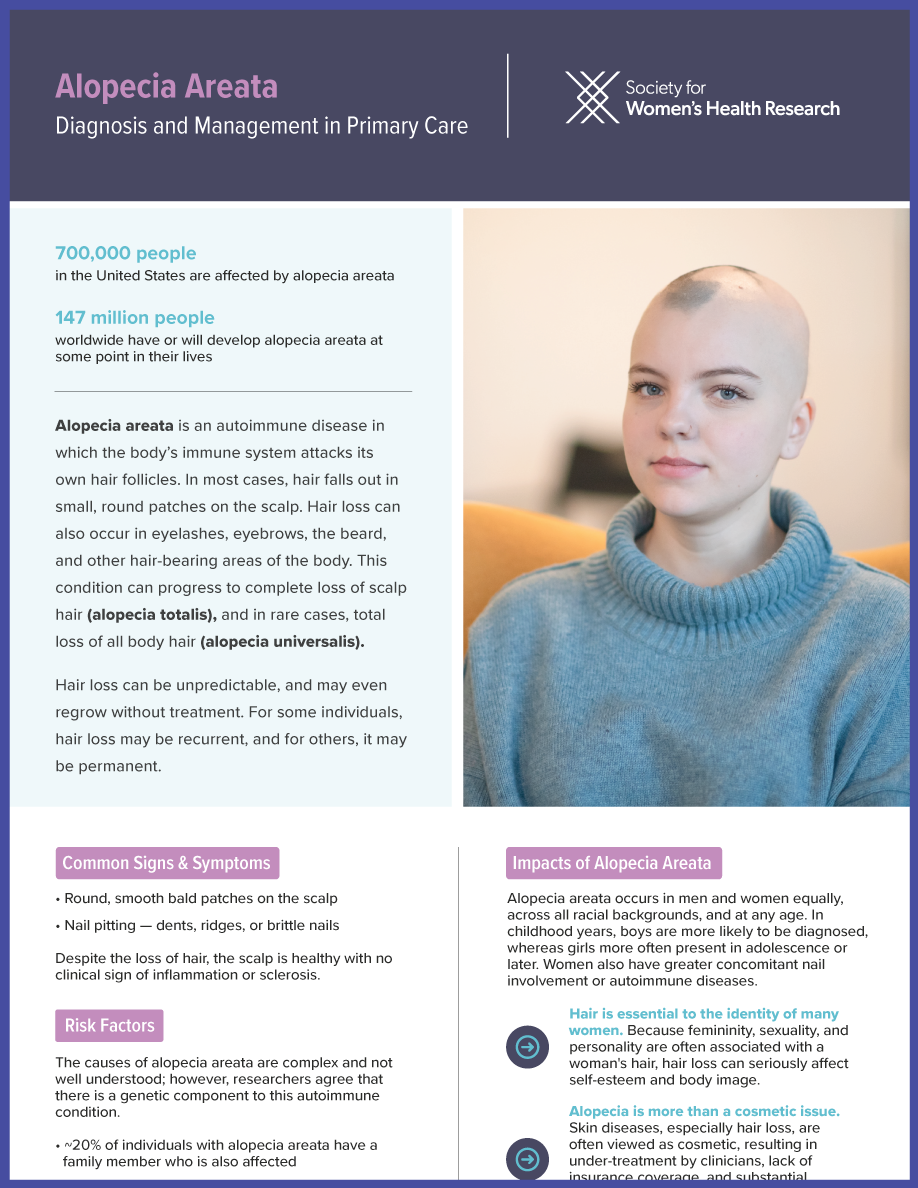Alopecia areata is an autoimmune disease in which the body’s immune system attacks its own hair follicles. In most cases, hair falls out in small, round patches on the scalp, but hair loss can also occur in eyelashes, eyebrows, and other hair-bearing areas of the body.
Although 700,000 people in the United States are affected by alopecia areata, there are gaps in research and challenges when it comes to insurance coverage.
This fact sheet from SWHR reviews common signs and symptoms of alopecia areata, risk factors and impacts of the disease, and treatment options.
SWHR thanks Eli Lilly and Company for their support of this educational work.
Download Fact Sheet
